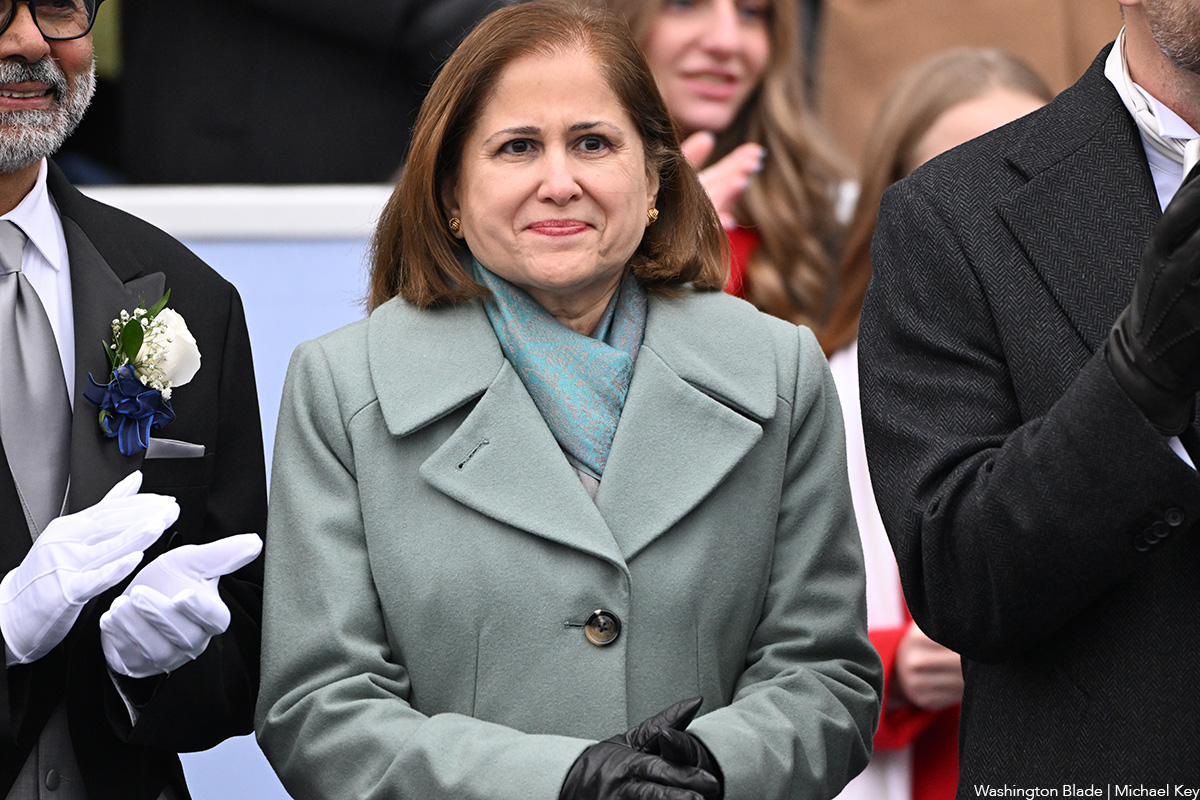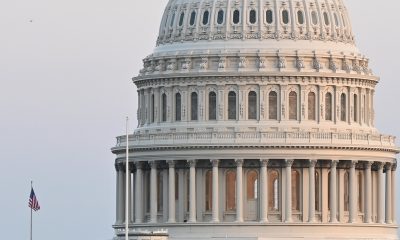Virginia
Loudoun County removes LGBTQ book from school libraries
Superintendent overrules committee that called for retaining ‘Gender Queer: A Memoir’

A Loudoun County, Va., School Board committee on Jan. 13 voted to uphold a decision by Loudoun County Public Schools Superintendent Scott A. Ziegler to remove from the school system’s high school libraries a controversial LGBTQ-themed book called “Gender Queer: A Memoir.”
The book is an illustrated autobiography by non-binary author Maia Kobabe that contains descriptions and comic book style drawings of sexual acts that Kobabe uses to tell the story of the journey and struggle in discovering the author’s gender identity.
Although the book has received an American Library Association award for its relevance to young adults, critics in school systems throughout the country have said its sexually explicit content is not suitable for school libraries.
The action by the School Board committee came after Ziegler asked a separate school system committee to review the book to determine if its content was appropriate for school libraries. Loudoun Public Schools spokesperson Wayde Byard told the Washington Post the committee, in a split vote, recommended that the book be retained in high school libraries.
According to Byard, Ziegler overruled the committee’s recommendation and ordered that the book be removed from the libraries. Byard said that decision was then appealed to a School Board appeals committee, which voted 3-0 to uphold Ziegler’s decision.
The decision by Ziegler to remove the book from school libraries took place about two months after Fairfax County, Va., Public Schools officials decided to return “Gender Queer” and another LGBTQ-themed book called “Lawn Boy” to their high school libraries after temporarily pulling the two books in response to complaints by some parents and conservative activists.
Two committees appointed by Fairfax school officials to review the two books that consisted of educators, school officials, parents, and students concluded that, while the books contained sexually explicit content, it did not cross the line as pornography or depictions of pedophilia as some opponents claimed.
“The decision reaffirms Fairfax County Public Schools’ ongoing commitment to provide diverse reading materials that reflect our student population, allowing every child an opportunity to see themselves reflected in literary characters,” a statement released by Fairfax school officials explaining their decision to retain the two books in their libraries said.
“Both reviews concluded that the books were valuable in their potential to reach marginalized youth who may struggle to find relatable literary characters that reflect their personal journey,” the statement says.
Virginia
McPike wins special election for Va. House of Delegates
Gay Alexandria City Council member becomes 8th LGBTQ member of legislature

Gay Alexandria City Council member Kirk McPike emerged as the decisive winner in a Feb. 10 special election for a seat in the Virginia House of Delegates representing Alexandria.
McPike, a Democrat, received 81.5 percent of the vote in his race against Republican Mason Butler, according to the local publication ALX Now.
He first won election to the Alexandria Council in 2021. He will be filling the House of Delegates seat being vacated by Del. Elizabeth Bennett-Parker (D-Alexandria), who won in another Feb. 10 special election for the Virginia State Senate seat being vacated by gay Sen. Adam Ebbin (D-Alexandria).
Ebbin is resigning from his Senate this week to take a position with Virginia Gov. Abigail Spanberger’s administration.
Upon taking his 5th District seat in the House of Delegate, McPike will become the eighth out LGBTQ member of the Virginia General Assembly. Among those he will be joining is Sen. Danica Roem (D-Manassas), who became the Virginia Legislature’s first transgender member when she won election to the House of Delegates in 2017 before being elected to the Senate in 2023.
“I look forward to continuing to work to address our housing crisis, the challenge of climate change, and the damaging impacts of the Trump administration on the immigrant families, LGBTQ+ Virginians, and federal employees who call Alexandria home,” McPike said in a statement after winning the Democratic nomination for the seat in a special primary held on Jan. 20.
McPike, a longtime LGBTQ rights advocate, has served for the past 13 years as chief of staff for gay U.S. Rep. Mark Takano (D-Calif.) and has remained in that position during his tenure on the Alexandria Council. He said he will resign from that position before taking office in the House of Delegates.
Virginia
Spanberger signs bill that paves way for marriage amendment repeal referendum
Proposal passed in two successive General Assembly sessions

Virginians this year will vote on whether to repeal a state constitutional amendment that defines marriage as between a man and a woman.
Democratic Gov. Abigail Spanberger on Friday signed state Del. Laura Jane Cohen (D-Fairfax County)’s House Bill 612, which finalized the referendum’s language.
The ballot question that voters will consider on Election Day is below:
Question: Should the Constitution of Virginia be amended to: (i) remove the ban on same-sex marriage; (ii) affirm that two adults may marry regardless of sex, gender, or race; and (iii) require all legally valid marriages to be treated equally under the law?
Voters in 2006 approved the Marshall-Newman Amendment.
Same-sex couples have been able to legally marry in Virginia since 2014. Former Gov. Glenn Youngkin, who is a Republican, in 2024 signed a bill that codified marriage equality in state law.
Two successive legislatures must approve a proposed constitutional amendment before it can go to the ballot.
A resolution to repeal the Marshall-Newman Amendment passed in the General Assembly in 2025. Lawmakers once again approved it last month.
“20 years after Virginia added a ban on same-sex marriage to our Constitution, we finally have the chance to right that wrong,” wrote Equality Virginia Executive Director Narissa Rahaman on Friday in a message to her group’s supporters.
Virginians this year will also consider proposed constitutional amendments that would guarantee reproductive rights and restore voting rights to convicted felons who have completed their sentences.

Lieutenant Gov. Ghazala Hashmi on Monday opened Equality Virginia’s annual Lobby Day in Richmond.
The Lobby Day was held at Virginia’s Capitol and was open to the public by RSVP. The annual event is one of the ways that Equality Virginia urges its supporters to get involved. It also offers informational sessions and calls to action through social media.
Hashmi, a former state senator, has been open about her support for the LGBTQ community and other marginalized groups. Her current advisor is Equality Virginia Executive Director Narissa Rahaman, and the group endorsed her for lieutenant governor.
Hashmi historically opposes anti-transgender legislation.
She opposed a 2022 bill that sought to take away opportunities from trans athletes.
One of the focuses of this year’s Lobby Day was protecting LGBTQ students. Another was protecting trans youth’s access to gender-affirming care.
Advocates spent their day in meetings and dialogues with state legislators and lawmakers about legislative priorities and concerns.




















